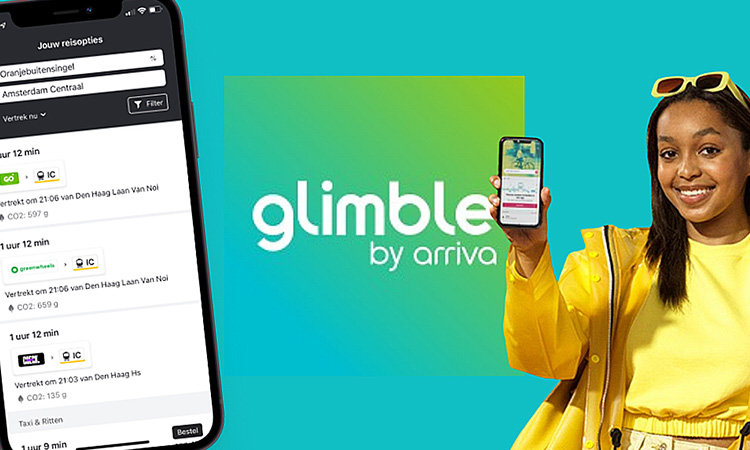How smart ticketing is revolutionising public transport and empowering operators
- Like
- Digg
- Del
- Tumblr
- VKontakte
- Buffer
- Love This
- Odnoklassniki
- Meneame
- Blogger
- Amazon
- Yahoo Mail
- Gmail
- AOL
- Newsvine
- HackerNews
- Evernote
- MySpace
- Mail.ru
- Viadeo
- Line
- Comments
- Yummly
- SMS
- Viber
- Telegram
- Subscribe
- Skype
- Facebook Messenger
- Kakao
- LiveJournal
- Yammer
- Edgar
- Fintel
- Mix
- Instapaper
- Copy Link
Posted: 30 August 2023 | Neil Shah - Arriva UK Trains | No comments yet
For Intelligent Transport, Neil Shah, IT & Digital Director at Arriva UK Trains, discusses the challenges of implementing fully integrated smart ticketing networks, and highlights the potential that data-driven insights have in informing strategic decision-making for transport authorities and operators.


The digital revolution is changing the way that people travel and has been gathering pace since the early 2000s, when transport authorities across the world began introducing the option for cashless travel. Now, nearly two decades later, technology has significantly advanced and smart ticketing has become mainstream. With this comes new opportunities.
Smart ticketing can also give customers the reassurance that they may need to travel with confidence, knowing that they’ve been offered the most cost-effective fare and that they will be automatically reimbursed in the event of delays”
Smart ticketing refers to the use of payment cards, mobile apps and smartcards to purchase and store tickets for journeys on public transport. It offers users a simple, convenient and integrated ticketing experience at their fingertips.
Providing a digital alternative to the traditional paper ticket removes the need to queue, enhances journey planning and makes the overall route from purchasing a ticket to using public transport more efficient and, often, cheaper. This is in addition to offering protection against theft, thanks to the use of personalised online accounts and records of purchase. And, crucially, smart ticketing can also give customers the reassurance that they may need to travel with confidence, knowing that they’ve been offered the most cost-effective fare and that they will be automatically reimbursed in the event of delays.
Empowering transport operators and authorities
In the wake of the pandemic, making public transport more attractive through initiatives like smart ticketing has never been more important”
However, arguably one of the great strengths of smart ticketing is that it not only brings access to public transport up-to-speed with the increasingly digital world, but it empowers transport authorities and operators to improve their offering, so that they can better meet customer needs. This is because smart ticketing provides invaluable, real-time data on passenger flows and market trends that would not be possible to collect through traditional retail methods. This additional insight enables transport authorities and operators to be more responsive to changes in travel patterns and to make strategic decisions on issues like route optimisation, capacity and service levels, whilst at the same time reducing costs and driving efficiency.
In the wake of the pandemic, making public transport more attractive through initiatives like smart ticketing has never been more important. COVID-19 saw the decline of the ‘traditional commute’ and has shifted the balance between discretionary and non-discretionary travel. With more people now able to work and study from home, the public transport sector must do all that it can to win these discretionary customers back, while simultaneously appealing to new markets and users.


Credit: Arriva
Public-private partnerships are key
At Arriva, we know that private sector operators have a pivotal role to play in pioneering this insight-led innovation, utilising best practice to meet evolving customer expectations. Arriva UK Trains has just announced a strategic partnership with Nagarro, a global digital engineering leader, to develop and improve our own well-established smart ticketing platform – the Arriva Customer Engine (known as ACE), which has been in use by customers on Chiltern Railways, Grand Central and Arriva UK Bus for five years. ACE is already a feature-rich, mature retail platform, trusted by hundreds of thousands of customers to provide a quick, simple and convenient solution to buy and access tickets and to be updated on their travel plans. ACE is now ready to be scaled up to the next level, setting it up for even wider adoption.
The success of ACE demonstrates the value that customers place on having an easy-to-use, digital service at their fingertips, catering for all of their planning, purchasing and ticketing needs. The future of ticketing must build on this approach, combining different modes of transport to maximise ease and convenience for the user in terms of time, cost, comfort, safety, accessibility and sustainability. This will also support the transition to ‘hub and spoke’ models for public transport, where integrated transit systems in major urban areas are linked together by longer distance services.
Overcoming the challenges
Collaboration and data sharing is essential if we’re to deliver the modern, integrated public transport networks that customers deserve”
Of course, there are a number of challenges when it comes to implementing fully integrated, smart ticketing networks. Arguably the greatest of these challenges relates to the legacy systems that are currently in place. These are often difficult to overhaul, as they have invariably been developed overtime and can be complex and fragmented.
For this reason, collaboration and data sharing is essential if we’re to deliver the modern, integrated public transport networks that customers deserve. The pandemic has created a burning platform for change within our industry, and we must all show the leadership and willingness that is required to help smart ticketing to achieve its potential.
Getting this right isn’t just good for the public transport sector – there’s a bigger opportunity to be considered. By delivering a successful and thriving public transport sector, we will support economic growth, spreading opportunity and driving forward the sustainability agenda to meet the climate commitments set out by the European Union (EU).
We’ve seen this in the Netherlands, where passengers are benefitting from Arriva’s free smart ticketing app and Mobility-as-a-Service (MaaS) solution, called ‘glimble’. Launched in 2021, glimble by Arriva makes it easier to compare and combine different modes of transport across all operators across the country when planning, booking and paying for a journey. Users can sort their travel options and journey plans based on the lowest CO2 emissions, lowest cost, fastest travel time or the fewest transfer stops on the journey. New operators and options are continuously added to the app. As well as convenience, the app also facilitates discovery, as people find new ways of getting from A to B. glimble has been developed with pan‑European potential, and we are now looking at other markets where the necessary data sharing agreements exist.
Continuing to transform public transport networks for the digital age
It’s clear that the digital revolution is fundamentally changing the way in which people access, purchase and consume all products and services, and transport is no different. New generations demand a simple, convenient and modern solution. The transport sector must relentlessly innovate to keep pace, benchmarking itself against other industries to meet and exceed customer expectations.
At Arriva, we are determined to remain at the forefront of this, striving for transformative change to deliver the very best public transport networks for the communities that we serve.


Related topics
Passenger Experience, Public Transport, Ticketing & Payments
Issue
Issue 2 2023
Related modes
Bus & Coach, Train
Related countries
The Netherlands, United Kingdom
Related organisations
Arriva, Arriva UK Trains
Related people
Neil Shah








